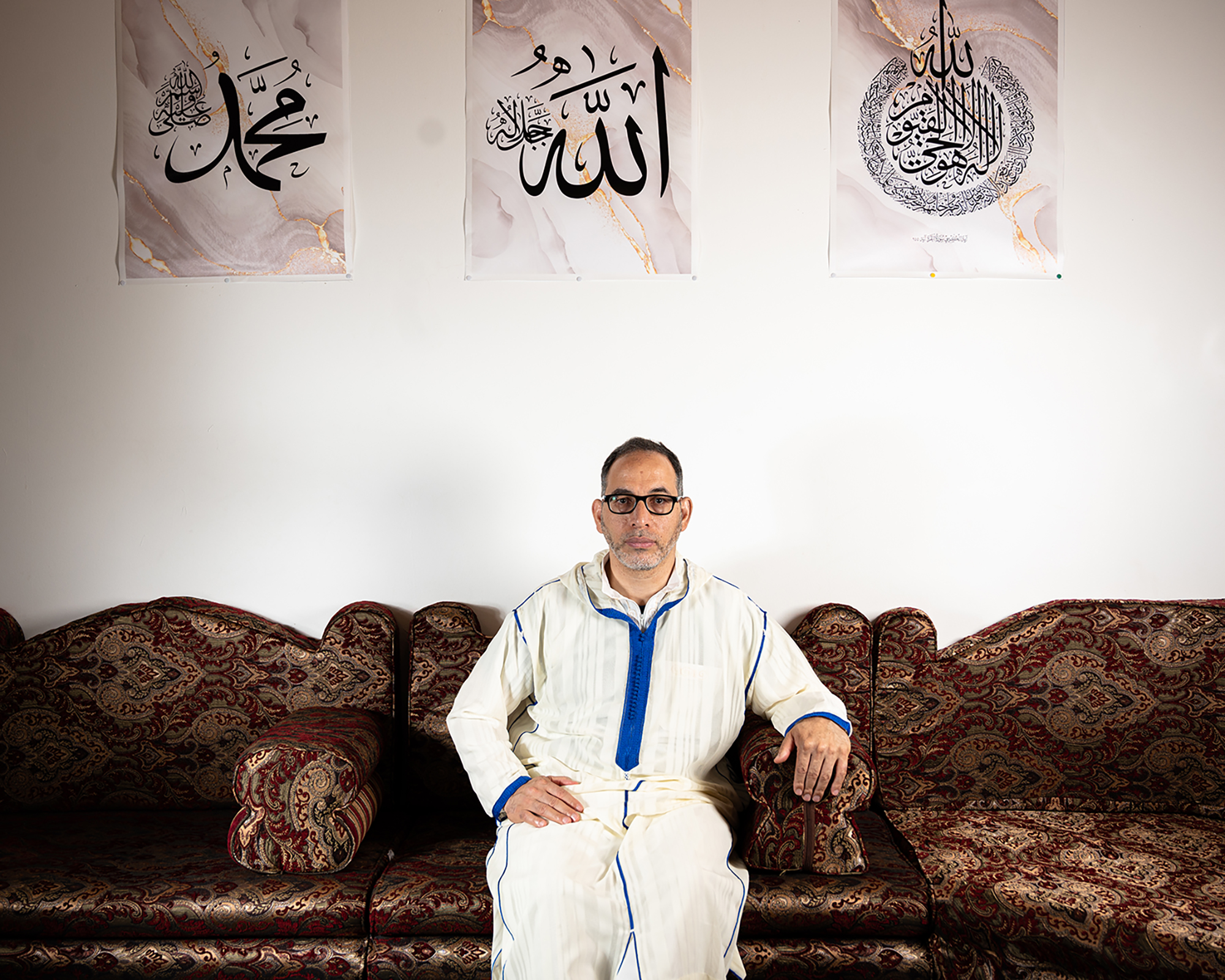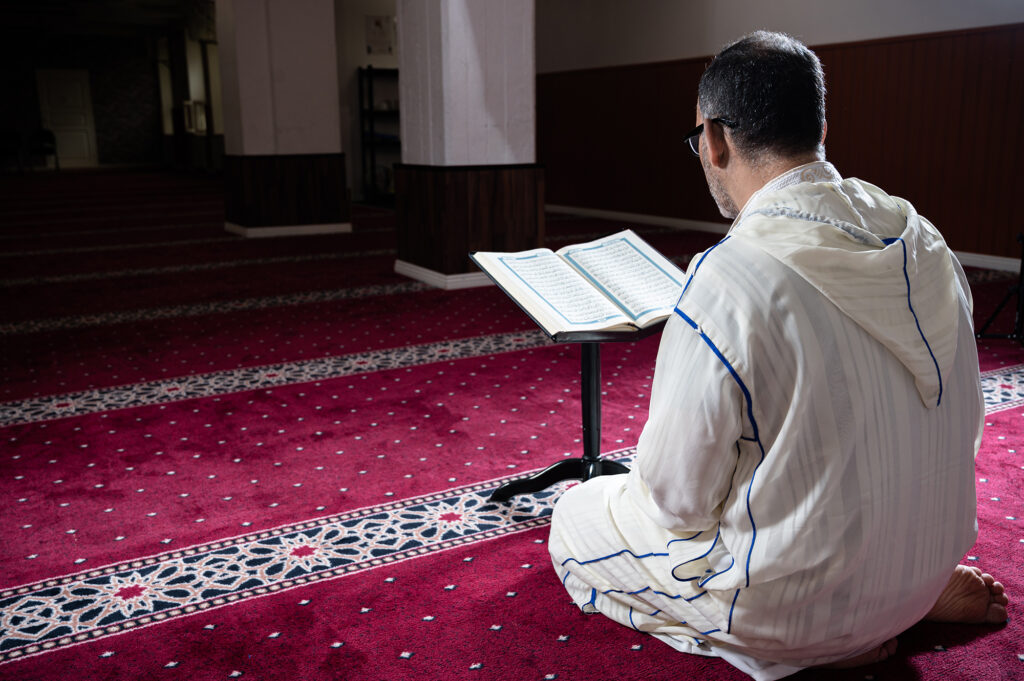Imam: Low education and social attitudes cause radicalization of immigrant youth

According to Dr. Alshaar, many young people from immigrant backgrounds, including those born in Finland, feel excluded from society because of neglect and rejection.
Seblewongel Tariku
Sercan Alkan
Published 08.10.2024 at 10:56
“Unfortunately, here in Europe, especially in Finland, we have only a few well-educated Muslim communities. This is one of the biggest challenges preventing youth radicalism,” says Dr. Mohammed Alshaar.
He is the imam of the Islamic Association in Helsinki and founding member of the European Council of Imams. He also holds a PhD in Islamic studies and linguistics and has taught at several universities. Egyptian-born imam has been living in Finland since 2007.
By lack of education, Dr. Alshaar does not refer solely to the formal schooling, but also to the youth having no or very limited knowledge of Islamic teachings, despite being raised in Islam.
This has not caused significant problems in Finland yet, Dr. Alshaar says. But it is something that both the Muslim communities and Finnish society in general should be aware of since issues can escalate over time.
Education and connection to communities help to deradicalize
According to Dr. Alshaar, the government bears significant responsibility in addressing immigrant youth radicalism. However, he thinks that the officials are not giving themselves the opportunity to fully understand the issue.
What is lacking, is proper understanding of Islamic and Arab culture. Many immigrants come from authoritarian background with low level of education. Without some structure or guidance, they may struggle with their newfound freedoms in Finland, Dr. Alshaar says.
His suggestion is that the Finnish government would participate in creating a form of authority regulating the Muslim religious domain in Finland, similar to different Islamic endowments in Muslim countries.
This authority wouldn’t be about imposing power negatively, but rather providing oversight that helps guide behavior and ensures individuals feel part of a regulated system.
“For example, someone may not improve their behavior on their own and could benefit from some form of structured support.”
Lack of resources hinder the work
Within the Islamic Association in Finland, there are currently two major challenges when it comes to preventing youth radicalization, says Dr. Alshaar. The first is shortage of resources.
“We don’t have enough money. The government provides a few thousand euros a year, but it is not enough.”
Additionally, he thinks that the members of the Muslim community don’t fully understand the challenges facing them. It’s partly because of their background. If one comes from a country ruled by a totalitarian regime, they often have the experience that they have nothing to say on issues.
“If we ask for charity or sponsorship, people won’t participate, because they don’t understand why it is important. They just think of buying an iPhone or car and feel that’s enough.”
The money would be needed to create activities to engage the youth, such as clubs and sports. We can’t expect the young people to spend all their time in the mosque praying, Dr. Alshaar points out.

The second problem is the lack of educated imams.
“In Finland, we only have three or four imams, who have studied at recognized Islamic institutions”, Dr. Alshaar says. “The rest are assigned out of necessity, without proper education. Some are even unable to read and write Arabic.”
On the short run, the problem can be addressed by hiring qualified imams who have graduated from internationally recognized Islamic institutions, like Al-Azhar University in Egypt, Dr. Alshaar says. His argument is that well trained imams could guide the youth more effectively, which in turn would reduce radicalization.
On the longer term, Dr. Alshaar would like to see establishment of departments for Islamic theology in Finnish universities. The idea would be to educate students in a proper Islamic studies but in a context of Finnish culture and European mentality.
The youth will find a group they feel they belong to – in better or worse
Discussing the problems in the Muslim communities is sometimes misunderstood as complaining against the community, Dr. Alshaar says. He does not like that kind of mindset. Instead, he sees addressing the problems as part of building bridges and integrating the Muslim communities effectively into Finnish society.
But building bridges is not something the Islamic communities can’t do alone. The attitudes of the Finnish society towards immigrants also need a change.
Currently, many young people with immigrant background feel excluded from the society, even though they would have been born in Finland, Dr. Alshaar says.
He talks about an underlying tone. No one is necessarily saying anything in the open, but the structures and the way people act in the society deliver the message: you don’t belong here, this is not your place.
A good example is the systemic discrimination in the labour market, he says.
“If an immigrant with a Muslim or African name applies for a job, it’s difficult for them get hired. Even before you apply, you have the feeling that you will be rejected.”
These kinds of experiences will lead to people feeling marginalized.
“People start thinking, ‘if I’m not part of the society I’m living in, I will seek one where I feel I belong’”.
Nowadays this search happens often on the internet and on social media. There, where also the extreme views spread.
“The youth in search for identity are vulnerable targets, because they are ready to accept the ideas.”
Dr. Alshaar also reminds that radicalization is not something that could happen only among immigrant Muslims.
In Finland, there’s been signs of extreme right-wing and anti-immigrant sentiments. Should them escalate into violence, that could provoke backlash from immigrants. That could include those who currently see Finland as their home.
Despite the situation is currently calm, there are warning signs, Dr. Alshaar says. Cooperation is needed to prevent future violence.